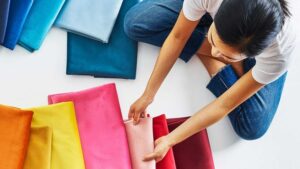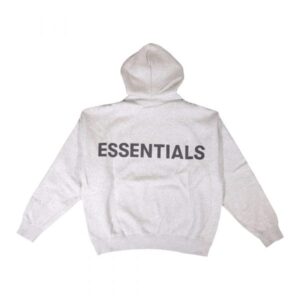In today’s world, where environmental concerns are at the forefront, the fashion industry is making significant strides towards sustainability. As conscious consumers demand more environmentally friendly products, the demand for sustainable fabrics has skyrocketed. Sustainable fabric supplier are crucial in providing Eco-friendly alternatives to traditional textiles. This article will explore the importance of sustainable fabric suppliers and delve into sustainable woven fabrics.
The Rise of Sustainable Fashion
Sustainable fabric suppliers act as the backbone of the Eco-fashion movement. They provide designers and manufacturers with a wide range of environmentally friendly fabrics that prioritize ecological balance and social responsibility. These suppliers work closely with mills, textile manufacturers, and artisans to ensure that every production process adheres to sustainable practices.
Sustainable Fabric Supplier: Paving the Way
Sustainable fabric suppliers are pivotal in driving positive change within the fashion industry.
Sourcing Ethical Materials
Sustainable fabric suppliers are committed to sourcing materials that have a minimal negative environmental impact. By opting for these materials, they promote biodiversity, conserve water, and reduce carbon emissions.
Supply Chain Transparency
One key characteristic of sustainable fabric suppliers is their commitment to transparency throughout the supply chain. They ensure every fabric production process is traceable, from fiber sourcing to weaving and finishing. This transparency enables consumers to make informed choices and supports brands in maintaining their sustainability claims.
Collaboration with Artisans
Sustainable fabric suppliers often collaborate with skilled artisans who employ traditional weaving and dyeing techniques. These collaborations preserve cultural heritage and create a market for handcrafted textiles.
Testing and Certifications
To ensure the authenticity of their sustainable claims, reputable fabric suppliers undergo rigorous testing and seek certifications from recognized organizations. Certifications like GOTS (Global Organic Textile Standard) and OEKO-TEX® Standard 100 guarantee that the fabrics meet stringent environmental and social criteria. These certifications assure brands and consumers that the fabrics are truly sustainable.
Research and Development
Sustainable fabric suppliers continuously invest in research and development to discover innovative materials and production techniques. They collaborate with scientists, engineers, and textile experts to explore alternatives to conventional fabrics. This commitment to innovation allows them to offer a diverse range of sustainable options that meet the evolving needs of the fashion industry.
Sustainable Woven Fabrics: A Green Alternative
Organic Cotton
Organic cotton is a widely recognized sustainable fabric. It is grown without genetically modified seeds or chemical fertilizers, making it environmentally friendly. Organic cotton woven fabrics are soft, breathable, and versatile, making them ideal for various fashion applications.
Hemp
Hemp is a highly sustainable plant requiring minimal water, pesticides, or herbicides. Woven fabrics made from hemp are durable, breathable, and possess natural antimicrobial properties. They are an excellent choice for creating garments with a casual and textured aesthetic.
Linen
Linen, derived from the flax plant, is a natural and biodegradable fabric. It is known for its exceptional breath ability and moisture-wicking properties, making it a popular choice for warm-weather clothing. Linen woven fabrics have a relaxed and timeless appeal.
Conclusion
The fashion industry is profoundly transforming towards sustainability, and sustainable fabric suppliers are at the forefront of this change. By sourcing ethical materials, prioritizing transparency, and investing in research and development, these suppliers pave the way for a greener and more Eco-friendly fashion future. Sustainable woven fabrics offer diverse options, allowing designers and consumers to embrace sustainability without sacrificing style. We can contribute to a more sustainable and responsible fashion industry by supporting sustainable suppliers and choosing Eco-friendly fabrics.






